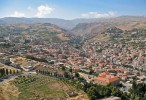The need for the region's burgeoning attractions industry to focus on education as well as entertainment has been highlighted following the launch of several exciting leisure venues.
New attractions such as Sharjah Aquarium, Dubai Dolphinarium, the Sharjah Museum of Islamic Civilisation, The Ambassador Lagoon and The Lost Chambers at Atlantis, The Palm, Dubai and Dubai Aquarium in the soon-to-open Dubai Mall have heralded the onset of an edutainment era for the Middle East.
Managing director of Trade Shows International Ltd Gerry Robinson, who is working with International Expo Consults in connection with the Dubai Entertainment, Amusement & Leisure 2009 15th anniversary show, defines edutainment as "an experience that provides, as its primary objective, a means to enable people to learn about something in a hands-on and enjoyable way".
The premise is that in order for a facility to establish a good reputation and longevity, guests and spectators must leave your attractions with more than just a 'wow' feeling. In order to have a really memorable experience, your visitors, no matter what their age, need to have learned something.
Not only will this encourage those visitors to return, but they will also speak favourably of the attraction to family, friends and colleagues, starting a valuable word-of-mouth marketing campaign.
Attractions can use various methods to impact customers to this degree. Interactive exhibits and working models, such as those in the science gallery at Sharjah Museum of Islamic Civilisation, are effective ways of using play as a teaching module and appeal to people between the ages of four and 90, according to Robinson.

Advertisement
At the Discovery Centre at the Dubai Aquarium, set to be a launch-day attraction for The Dubai Mall on October 30, touch pools where visitors will come face-to-face with various sea creatures are another medium used to combine fun with education. Similar interactive exhibits will also be on offer at The Lost Chambers.
There are less technical methods of ensuring that your visitors have an educational experience, however.
With research showing that only 10% of people read the signage that is often placed next to museum exhibits, the need to provide proactive and well-informed museum and attraction guides has never been so important.
The Sharjah Museum of Islamic Civilisation collections advisor and co-director Dr Ulrike Al-Khaimas reinforces this with the opinion that "museum visiting is still a new idea as far as people here are concerned".
To overcome this challenge, Al-Khaimas explains that local guides are a valuable asset to the museum, increasing both the numbers of locals and tourists visiting. The personal guides will complement a guide book, but there are no plans as yet for an audio guide.
The Lost Chambers is taking this strategy one step further by creating personal 'navigators', who will be dressed in Indiana Jones-style uniforms to reflect the mystical and adventurous themes of the Atlantis aquarium.
Guests can also watch daily feeding sessions in the lagoon and Kerzner International Development LLC vice president of marine sciences & engineering Steve Kaiser believes that if visitors really want to learn, they could spend up to 40 minutes in The Lost Chambers.
These new attractions have set the bar for edutainment in the region. With further projects such as Restless Planet in Dubailand - which will reportedly boast the world's largest collection of animatronics dinosaurs as well as having an earth science museum and planetarium - set to come online within the next two years, the challenge now is to see how far this standard can be raised.
Louise Oakley is the editor of Leisure Manager.
RELATED LINKS: Close encounter, Interaction vital for museum visitors









 Search our database of more than 2,700 industry companies
Search our database of more than 2,700 industry companies









